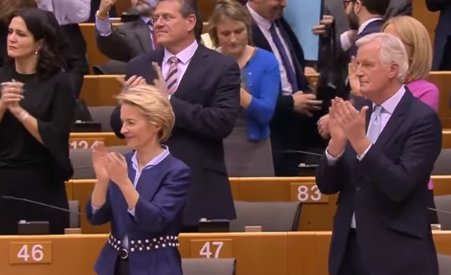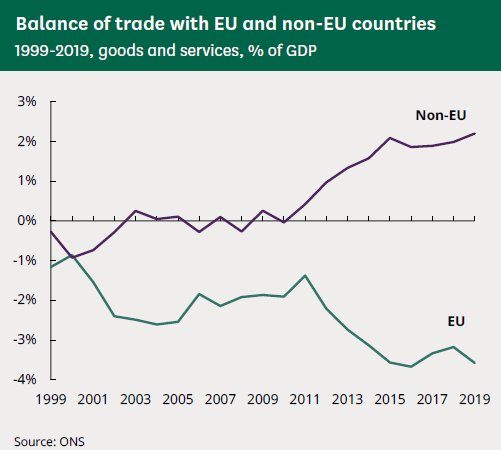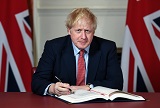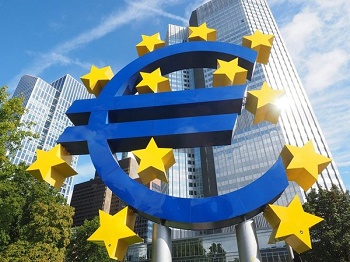By Professor David Blake, first published by Facts4EU.Org

© Brexit Facts4EU.Org 2020
Reminder from Part One: The European Union is seeking a ‘level playing field’ with the UK after Brexit. One of the key issues concerning the EU is ‘dumping’. It is worried that the UK will become a super-competitive, de-regulated ‘Singapore-on-Thames’, undercutting the prices of products produced in the EU.
In fact the opposite is the case and below are some threats but also some opportunities.
Here is what the UK could do
The UK government has introduced a Trade Bill which will establish a new Trade Remedies Authority (TRA) to prevent countries from dumping cheap goods onto the UK market and potentially putting key domestic industries out of business.
The Bill may have been intended to target China, in particular, but trade remedies can be levied against any World Trade Organisation member, including the EU, whether or not there is a Free Trade Agreement (FTA) in place.
The EU wants its unfair practices to continue, tying the UK into EU law
We are told that the EU ‘holds all the cards’ in the trade negotiations with the UK. EU Commission President Ursula von der Leyen says the EU is “ready to design a new partnership with zero tariffs, zero quotas, zero dumping” with the UK.
The EU’s current treaty-based proposal for avoiding trade dumping would involve the UK applying EU law. This includes (extraordinarily and uniquely in international trade between properly sovereign nations) the application of that law as interpreted by the European Court of Justice.

© EU Parliament
This would have the effect of permanently advantaging Germany and other Eurozone (EZ) member state beneficiaries and continuing an arrangement that is demonstrably unfair to the UK.
It is quite shocking that the new German president of the European Commission calls for zero dumping, when her own country is one of the world’s biggest dumpers of goods onto world markets.
The UK’s massive deficit with the EU, due to the euro
The UK has always run a trade deficit with EU, but the chart below shows that prior to the introduction of the euro in 1999, the size of the deficit was relatively small at around 0.25% of GDP. But since then, the deficit has ballooned to nearly 4% of GDP. The chart shows a strong downward trend and that trend shows no sign of ending. By contrast, we have a trade surplus with non-EU states and that surplus is on a strong upward trend. And most of the trade with with non-EU states is conducted on World Trade Organization (WTO) terms and hence involves tariffs.
This chart conclusively demonstrates that sterling is not overvalued (otherwise the trade surplus with non-EU states would not be increasing year-on-year), but that the euro is significantly undervalued.

© House of Commons Library: Research briefing 10 Nov 2020, ‘Statistics on UK-EU Trade’
A trade deal on the basis of the current structural undervaluation of the euro will only entrench the EU’s structural trade surplus with the UK. The undervalued euro acts as a trade subsidy to firms from within these countries, giving them an advantage over global competitors.
We can and must act now to protect UK interests
This cannot be permitted to continue and the solutions are clear. The trade agreement currently being negotiated with the EU is a trap from which we could never exit if Boris Johnson signs it. We can and must act now, to protect the UK from the Eurozone. The Withdrawal Agreement (WA) must be rescinded and Parliament must pass legislation, such as the Internal Market Bill and the Finance Bill, which reverses the appalling consequences of the WA for the unity of the UK.

© No.10
Especially important is the Trade Bill and the introduction of the Trade Remedies Authority (TRA) which will allow the UK to conduct its own dumping and subsidies investigations. The TRA’s first task should be to take a very close look at the structurally undervalued euro. This potentially violates two areas of international law: dumping and subsidies.
First, Article VI of the General Agreement on Tariffs and Trade (GATT) points out that multiple currency practices can ‘constitute a form of dumping by means of a partial depreciation of a country’s currency’, thereby benefitting EZ exporters unfairly. The anti-dumping remedy in this case is the imposition by the importing state of an additional duty on the dumped goods.
Second, artificially low currencies could amount to an export subsidy and therefore breach the WTO’s Agreement on Subsidies and Countervailing Measures (SCM).
Had the euro been correctly valued, then EZ exports to the UK in 2018 would have been lower by between £67.2bn and £88.4bn. The UK would therefore be entitled to impose an annual anti-dumping duty on the EZ in that range. We should note that China just imposed anti-dumping duties of between 107%-212% on Australian wine.

Trading on WTO terms
Finally, we should not be afraid of trading with the EU on WTO terms. Although this would involve tariffs, the average tariff is low, at around 3%. The benefit is that we would escape the myriad traps that the EU has set for us.
And trading with the rest of the world on WTO terms has done us no harm at all. In addition, we will be able to negotiate FTAs with these other countries and this will remove tariffs with them altogether.
Part Two of a two-part article by Professor David Blake